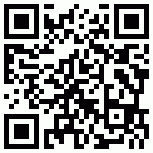A recent wave of Quran burnings in Sweden and Denmark is "an assertion of a broader anti-immigrant, anti-non-European right-wing bias that has grown to be quite politically strong," a former UN special rapporteur has said.

 QR code
QR code

Quran burnings proof of broader bias against migrants in Europe: ex-UN rapporteur
7 Aug 2023 - 23:43
A recent wave of Quran burnings in Sweden and Denmark is "an assertion of a broader anti-immigrant, anti-non-European right-wing bias that has grown to be quite politically strong," a former UN special rapporteur has said.
"It seems to me to serve … no possible constructive purpose. And I think there is a strong case for [such acts to be] prohibited."
In recent months, far-right groups have desecrated and burnt several copies of the Quran in Denmark and neighbouring Sweden, drawing fierce condemnation from Muslims around the world and calls for measures to stop such acts.
In late July, Sweden's Prime Minister Ulf Kristersson said he was in "close dialogue" with his Danish counterpart Mette Frederiksen, stressing that both countries recognise that "the situation is dangerous and measures are needed to strengthen our resilience."
While Kristersson has ruled out any sweeping changes to Sweden's freedom of expression laws, Denmark's government has said it is "exploring the possibility of intervening in special situations," but only "within the framework of the constitutionally protected freedom of expression."
The UN General Assembly, meanwhile, adopted a resolution on 25 July that terms all acts of violence against holy books a violation of international law.
Asked about the possible reasons for the series of attacks on the Quran, Falk said it could be linked to Sweden's NATO accession, which has moved closer to materialising after Turkiye's President Recep Tayyip Erdogan agreed to forward it for parliamentary ratification.
"One can speculate that it is somewhat related to a concern that the EU promised things to Türkiye in exchange for allowing Sweden to join NATO," said Falk.
"And there may be some outside anxiety that this will mean a more of a Muslim presence in Europe. This might conceivably be a way of saying that if the EU goes in that direction, there will be social and political trouble. So, it's an assertion of a broader anti-immigrant, anti-non-European right-wing bias that has grown to be quite politically strong, including in Sweden and Denmark."
Though such behaviour could fall under the umbrella of "free speech", Falk explained, it may also be linked to a "formation of violent behaviour" in some cases.
He cited the US as an example, saying the country has a "rather extreme version of freedom of speech."
"[In the US] One would have to show not only that the burning of the Quran occurred, but that there's some connection with an actual crime. Like the Quran that was burned belonged to somebody else, and therefore it was theft, or that it was burned in a public place that endangered public order and property."
He said various European countries "have a less permissive view of freedom of speech and are more concerned with prohibition of hate crime."
"Therefore, this kind of act could be prohibited under the broad prohibition against hate speech, which exists, I know, in the UK and Germany, for instance," he said, adding that the same may not be the case under Scandinavian laws.
Falk said these countries could pass laws to prevent attacks on holy books, emphasising that they "would have considerable international support at this point."
"Because there is a recent UN resolution … that does say it's contrary to international law, to burn or otherwise destroy," he said.
However, he also pointed out that a recent UN Human Rights Council resolution that condemned acts of religious hatred, including attacks on the Quran, was opposed by 12 countries, including Western powers such as the US, UK, France and Germany.
Story Code: 602922